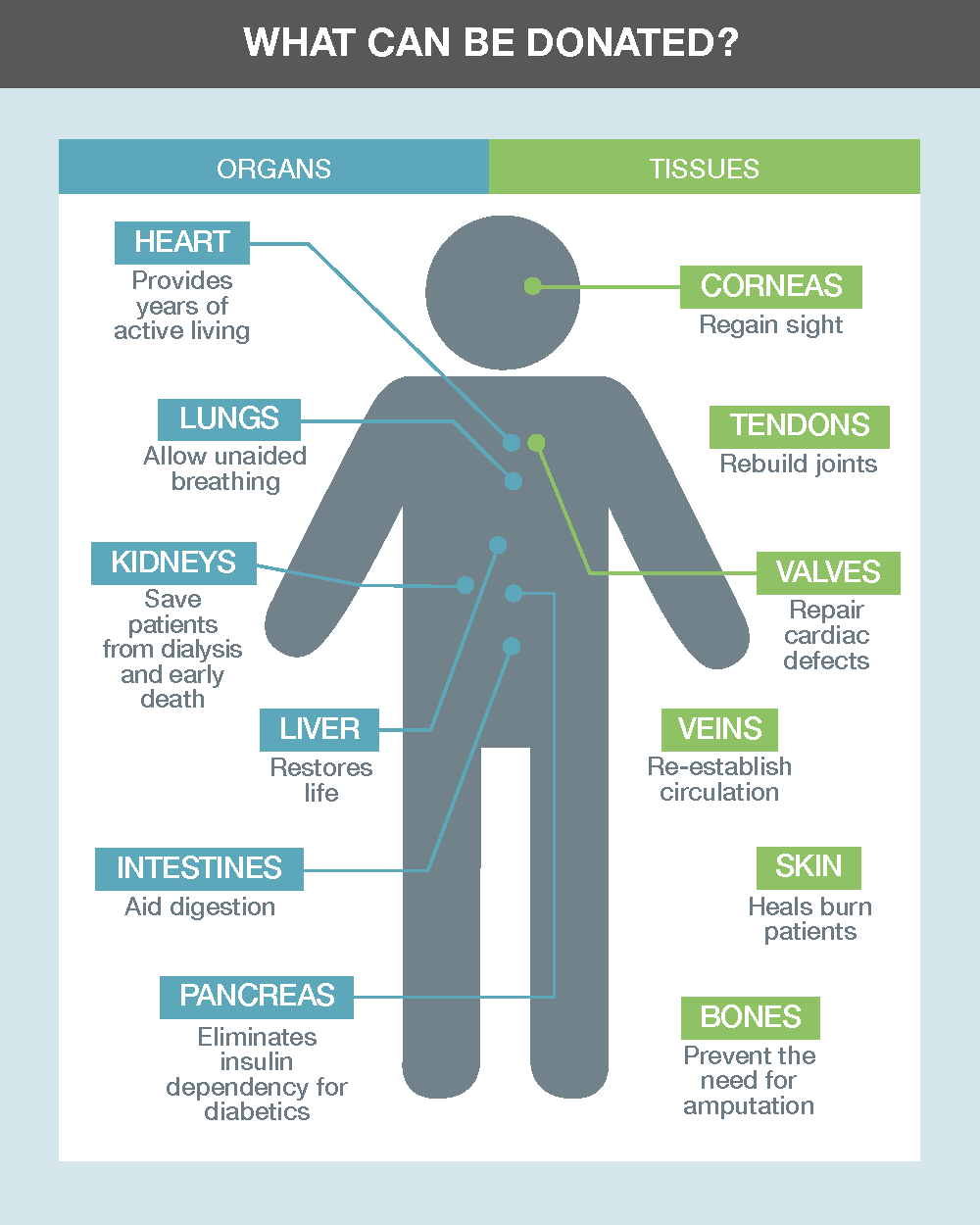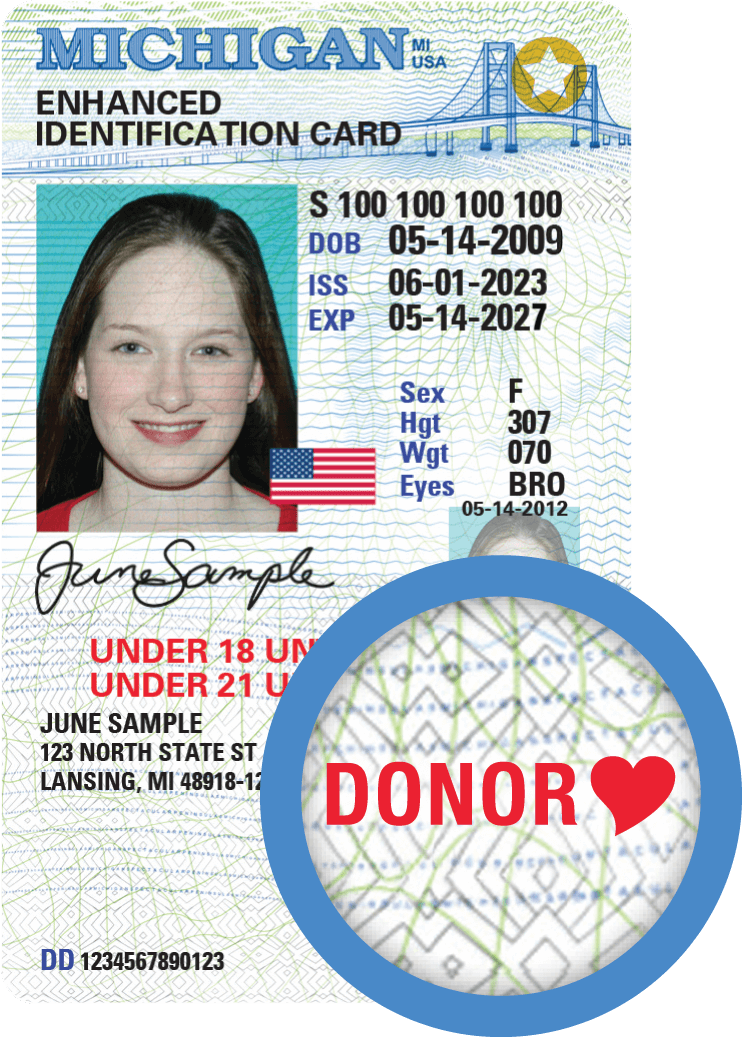Organ donation facts to help you make a decision.
During your driver’s ed class sessions, you were probably provided information about organ donation.
It's important to understand what it means to sign up on the Michigan Organ Donor Registry before you're asked the question, which a clerk will do when you visit a Secretary of State branch office to get your temporary or permanent license.
Signing up to be an organ donor means that someone has given permission for their organs to be given after their death to someone else who needs them to stay alive.

Organ donation by the numbers
- Over 100,000 patients waiting for a transplant nationally
- Up to 3,000 patients waiting in Michigan
- In Michigan, more than 200 patients waiting are between the ages of 1 and 34 years old
Some facts to help guide your decision in checking the box:
- A majority of Michiganders – 4.6 million – are registered organ donors.
- Most major religions support organ donation.
- La donación de órganos no se considera hasta que se hayan agotado todos los esfuerzos para salvar la vida del paciente.
- Don’t rule yourself out for health reasons. Medical experts decide which organs and tissues, if any, are healthy enough to help others.
- There is no age limit for organ and tissue donation.
- There is no cost to the donor or their family.
What happens once you sign up to become an organ donor?

- Documenting your decision about donation takes it off your family later. That’s why it’s important to share and speak to your family about wanting to be a donor upon your death. It also can provide your loved ones with a sense of purpose and healing in a time of pain and loss.
- Your decision helps others. One donor can save and heal more than 75 people. More than 100,000 people are waiting for a lifesaving transplant. That list could someday include someone you love.
- Your values and legacy. Donating is the most generous and selfless gift you can give.






